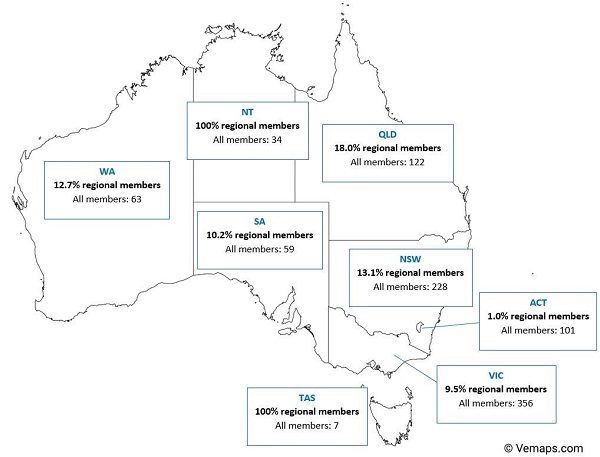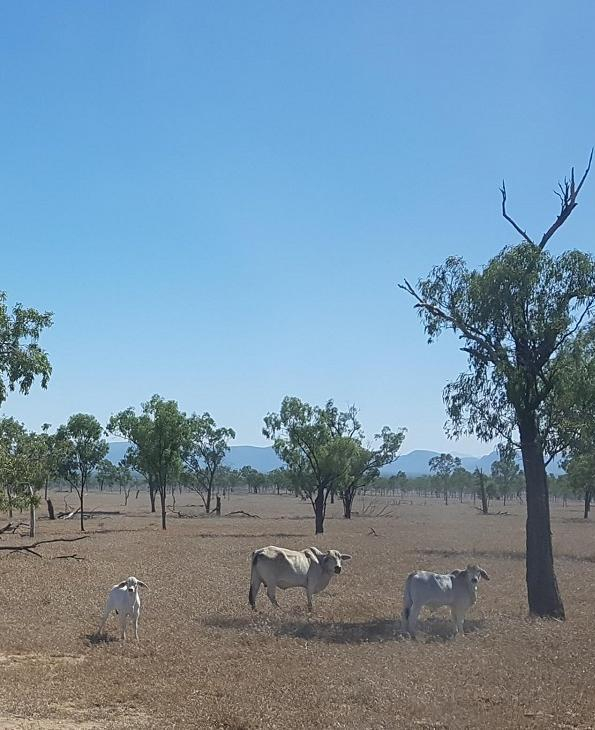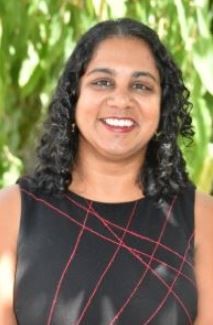Welcome to the AES Blog
Regional evaluators: why evaluation can’t do without them
by Renée Madsen
Regionally-based evaluators – those living and working outside major cities – are a vital part of the evaluation ecosystem. They bring the benefits of evaluation to areas where essential services can be thinly spread and under pressure to deliver the best possible results with limited resources. Regionally-based evaluators ensure that evaluation is accessible to those who would not otherwise be able to engage with evaluation expertise, and we represent the profession in areas it would not otherwise reach.
With increasing numbers of people moving from capital cities to regional areas, regional evaluators with their unique perspectives and experiences will become ever more important in pushing the boundaries of what evaluation can achieve, and ensuring that the profession adds value for all Australians, regardless of where they live.
However, at the moment regionally-based evaluators make up less than 15% of all AES members. What does this mean for our profession’s ability to give regional communities the same access to evaluation as major cities? And how can we increase the capacity of our profession to truly understand and involve regional communities in evaluation?
I’m an evaluator based in Townsville, North Queensland. I have been evaluating a diverse range of programs for 20 years, and I’ve been an AES member for almost 10 of those. I believe in building the strengths of regional areas, and the power of evaluation to create positive change, and like many regional evaluators, I love combining the two.
How many regional AES members are there?
For the purposes of this article, the definition of regional is anywhere outside a major city, as defined by the ABS Remoteness Structure. The map below shows the number of regional AES members in Australia.

Image: Number of regional AES members. The ABS Remoteness Structure considers all areas of the Northern Territory and Tasmania as regional. Source: Renée Madsen and Michelle Wightwick.
Regionally-based evaluators are only a small proportion of AES members. For example, Victoria has the largest number of AES members at 356, but less than 10% of these members are based outside a major city. This trend is repeated across all states and territories (except NT and Tas). Overall, only 14.6% of all AES members are regional.
With such a small number of us living outside major cities, can our profession give regional communities the same access to and standard of evaluation as major cities? Given the cost of travel and the need to understand local context, can regional areas enjoy equitable access to evaluation expertise? And do we, as a profession, have the capacity and the commitment to truly empower and involve regional communities in evaluation?
The value of regionally-based evaluators
Our numbers may be small, but our contribution is big! Here are just a few ways that regional evaluators add value to the profession:
We go the extra mile - sometimes literally.
Conference attendance and professional development can involve multi-leg flights and/or long car journeys, and all the expense that comes with those. Without the benefit of local networking events, we take the initiative and reach out to find other practitioners using social media or Google, or ask someone to send us the notes from seminars that we couldn’t attend before everything went online due to COVID-19. (Shoutout to the AES Qld Regional Committee for sending me seminar notes over the years!)
We’re also highly driven to learn extra skills to expand our toolkit. With limited access to technical specialists, who are generally based in major cities, we often become a ‘jack of all trades’, choosing to learn specialist techniques and approaches ourselves so we can implement them with regional communities that would not receive the benefit of them otherwise.
We know how things are done in our local community.
Every evaluator knows that stakeholder engagement can make or break an evaluation. Regional practitioners understand the local stakeholders and their relationships, where the landmines are, and the likely touchpoints for collaboration. Mistrust of government programs - and anyone associated with them - runs deep in some places. This is particularly relevant for evaluators, as much of our work is evaluating government-funded programs.
More Aboriginal and Torres Strait Islander people live in regional areas than capital cities, and locally-based evaluators are more likely to have helpful contacts, understand the lay of the land, and know how our local First Nations brothers and sisters prefer to be invited to share their knowledge and experiences.
We’re masters at making evaluation relevant.
One of the great rewards of being a practitioner in the regions is bringing evaluation to people who have never used it before. In places where ‘government’ and ‘head office’ are often a long way away, regional evaluators become very good at explaining what evaluation is and making it relevant. We work across a wide range of scales and industries, from multi-million-dollar programs to small volunteer projects and everything in between, involving government, researchers, industry bodies, technical specialists and community groups.
We are practical, flexible, creative and resourceful
There’s never a dull moment when you’re a regionally-based evaluator. I’ve facilitated an evaluation discussion with graziers in an outback pub garden with no walls to stick up my trusty butchers paper (the horror!) while the pub’s resident dog wandered around snuffling our table scraps. I’ve explained to bemused volunteer conservation groups that the funding body needs them to report on whether they used corflute or cardboard tree guards for high-level evaluation purposes. (No, I’m not making that one up.) Working outside of corporate office environments teaches us to be highly flexible and resourceful.
We’re also experts at adapting evaluation to diverse communities and being creative in low technology settings. Instead of a workshop in a central location with lovely catering and ipads all round, we’re more likely to be standing in the middle of a field or on the phone at night, competing for attention with events like mustering; or scribbling diagrams on the back of a coaster as we talk with community members. We’ll cobble together elements of different approaches to find new and practical ways to use evaluation and add value to the communities we live and work in. Everyone deserves good evaluation!

What I’d love to see as a regional evaluator
- More presentations from regional evaluators at AES conferences. We have great stories to tell and a wealth of knowledge to share. However, our attendance costs remain high and it would be good to explore ways to offset these costs for regional members in ways that promote equity for all AES members.
- More collaborative partnerships between regional evaluators and those based in capital cities – there are many opportunities for mutual learning and skill sharing across evaluation practice, training, promoting our profession, etc.
- More project-based collaboration with regionally-based evaluators. It would be good to see AES members based in metropolitan areas proactively working with locally based evaluators to ensure the best outcome for evaluations in regional areas. Keep a register of evaluators who are on the ground in different regions and collaborate with them on projects that involve their communities.
- More informal connections. If you’re visiting a regional town, find out if there are any local AES members and catch up for a chat. Opportunities for peer-support are limited for regionally-based evaluators. To support this, the online AES Member Directory could include the ability to search by city as well as by state. (Website developers are checking whether this is possible for the upcoming revamped AES website.) Try checking with your state AES Committee to see if they can point you in the direction of who is working in regional areas you are visiting.
- Sustained opportunities for online AES networking sessions, seminars and workshops – being able to engage in professional learning and networking through virtual platforms provides a fantastic opportunity for all of us to connect across geographic distances.
Image: As a regional evaluator, you may be subject to intense scrutiny. Source: Renée Madsen
Get in touch and share your thoughts….
I would love to hear from evaluators who live and work outside metropolitan areas. What’s it like for you as a regionally-based evaluator? What do you think about the future of evaluation outside major cities?
For my ‘big city’ colleagues - much has been made of society’s capacity to make changes to established practices in the wake of COVID-19. Will you do anything differently in connecting and collaborating with your regional colleagues?
--------------------------
Renée Madsen is Principal Consultant at Create and Evaluate, a group facilitation and evaluation consultancy in Townsville, North Queensland. Connect with Renée on LinkedIn or visit www.createandevaluate.com.au . Renée would like to thank her fellow regional evaluators Dr Julie Funnell, Ms Barbara Colls and Ms Donna Turner for their contributions to this article.
We acknowledge the Australian Aboriginal and Torres Strait Islander peoples of this nation. We acknowledge the Traditional Custodians of the lands in which we conduct our business. We pay our respects to ancestors and Elders, past and present. We are committed to honouring Australian Aboriginal and Torres Strait Islander peoples’ unique cultural and spiritual relationships to the land, waters and seas and their rich contribution to society.


